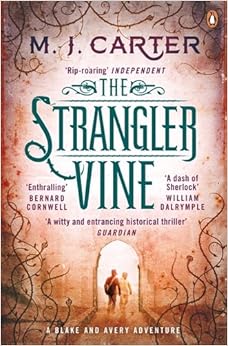500 Words From...is a series of guest
posts from authors, in which they talk about their books and characters. Here, Ovidia Yu, one of Singapore’s most acclaimed authors, talks
about Aunty Lee, feisty widow, amateur sleuth,
and proprietor of The Lion City’s best-loved home-cooking restaurant. Aunty Lee has now brought her charm and wit -
not to mention her intelligence, nosiness, and crime-solving skills - to two delectable mysteries, Aunty
Lee’s Delights, and Aunty Lee’s
Deadly Specials. Both books are published
internationally by William Morrow Paperbacks, enabling
readers far beyond Singapore to be beguiled by Aunty Lee.
So, over to Ovidia…
“Inspiration for Aunty
Lee? Parts of Aunty Lee came from various so-called aunties I know - not
necessarily older, good at cooking or even female! She loves cooking and
feeding people and as far as she is concerned, eating together is the best way of
becoming friends. She also loves sorting out other people’s problems for them,
including murders they may be suspected of committing.







